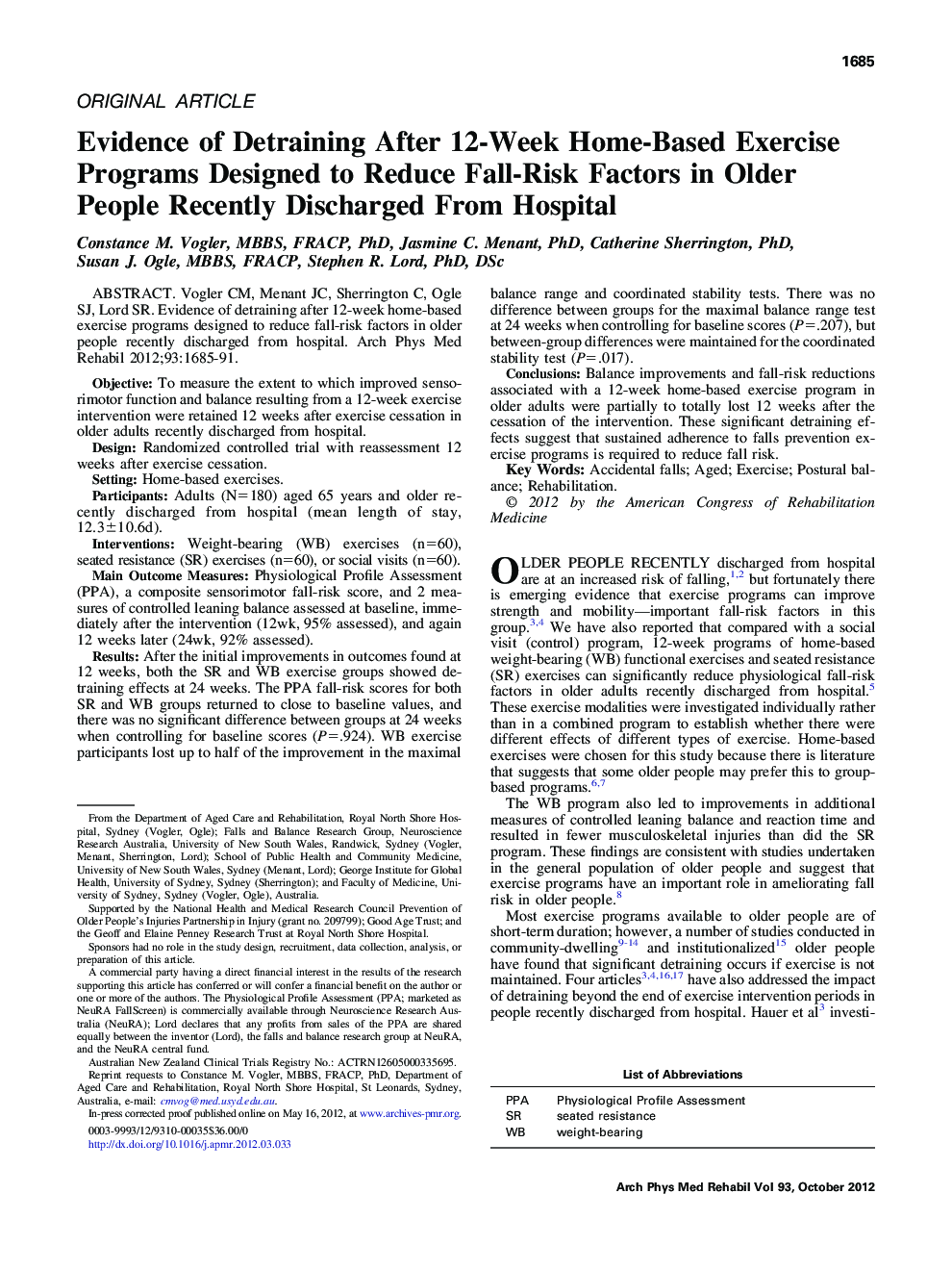| Article ID | Journal | Published Year | Pages | File Type |
|---|---|---|---|---|
| 3449771 | Archives of Physical Medicine and Rehabilitation | 2012 | 7 Pages |
Vogler CM, Menant JC, Sherrington C, Ogle SJ, Lord SR. Evidence of detraining after 12-week home-based exercise programs designed to reduce fall-risk factors in older people recently discharged from hospital.ObjectiveTo measure the extent to which improved sensorimotor function and balance resulting from a 12-week exercise intervention were retained 12 weeks after exercise cessation in older adults recently discharged from hospital.DesignRandomized controlled trial with reassessment 12 weeks after exercise cessation.SettingHome-based exercises.ParticipantsAdults (N=180) aged 65 years and older recently discharged from hospital (mean length of stay, 12.3±10.6d).InterventionsWeight-bearing (WB) exercises (n=60), seated resistance (SR) exercises (n=60), or social visits (n=60).Main Outcome MeasuresPhysiological Profile Assessment (PPA), a composite sensorimotor fall-risk score, and 2 measures of controlled leaning balance assessed at baseline, immediately after the intervention (12wk, 95% assessed), and again 12 weeks later (24wk, 92% assessed).ResultsAfter the initial improvements in outcomes found at 12 weeks, both the SR and WB exercise groups showed detraining effects at 24 weeks. The PPA fall-risk scores for both SR and WB groups returned to close to baseline values, and there was no significant difference between groups at 24 weeks when controlling for baseline scores (P=.924). WB exercise participants lost up to half of the improvement in the maximal balance range and coordinated stability tests. There was no difference between groups for the maximal balance range test at 24 weeks when controlling for baseline scores (P=.207), but between-group differences were maintained for the coordinated stability test (P=.017).ConclusionsBalance improvements and fall-risk reductions associated with a 12-week home-based exercise program in older adults were partially to totally lost 12 weeks after the cessation of the intervention. These significant detraining effects suggest that sustained adherence to falls prevention exercise programs is required to reduce fall risk.
